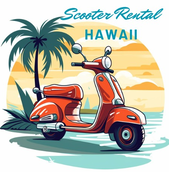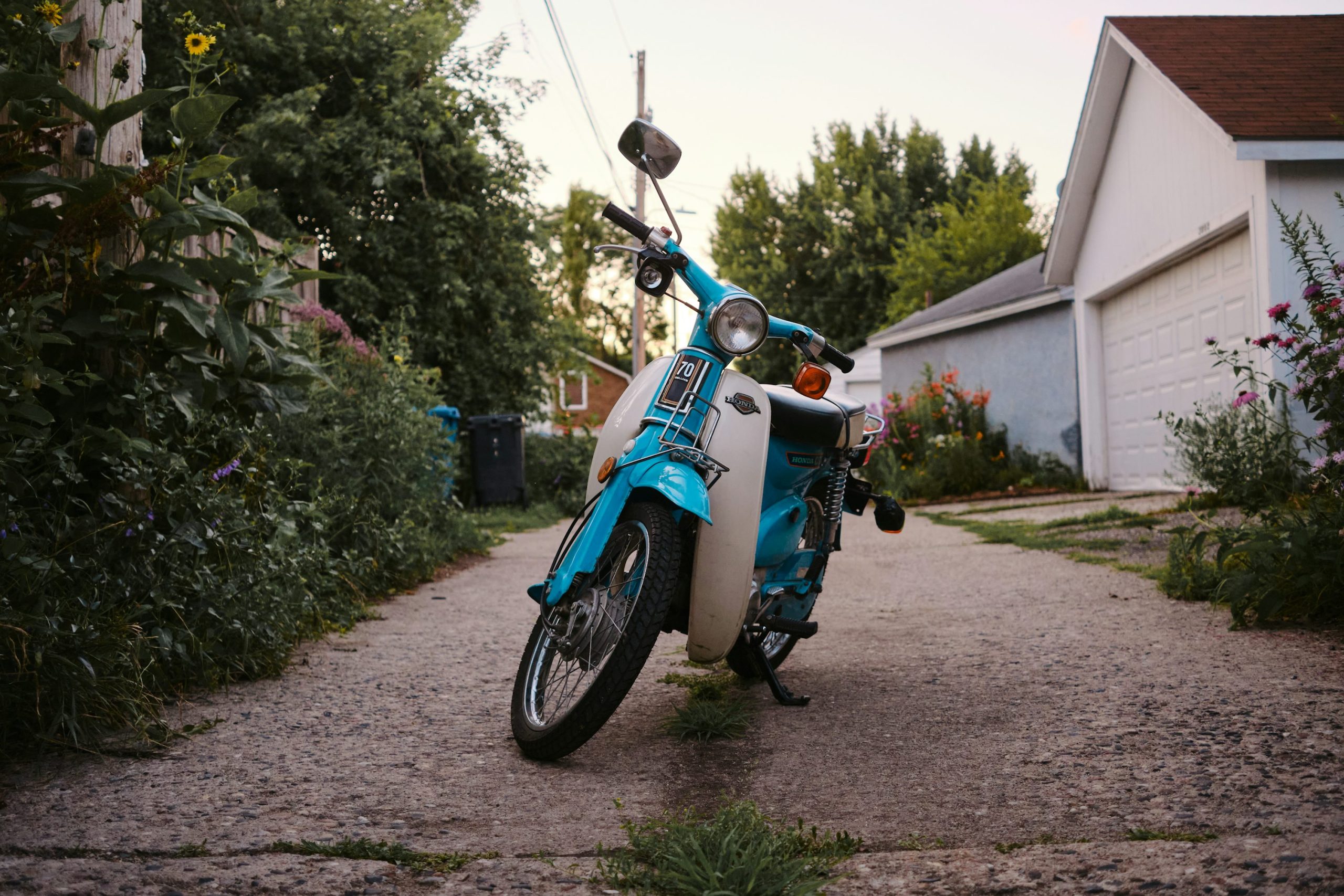If you’ve just bought a moped, you might be asking yourself, “Do I need to register this?” It’s a common question that many new moped owners face.
Whether you plan to cruise along Hawaii’s scenic routes or use your moped for daily commutes in crowded urban areas, these vehicles are a great alternative to cars and motorcycles.
The short answer is that registration is often required, but the specifics can vary based on location, moped type, and local laws. In addition to registration, a valid driver’s license is often required to operate a moped legally. Different states have different rules, so let’s dive deeper into this topic.
Understanding Mopeds: Definition and Classification
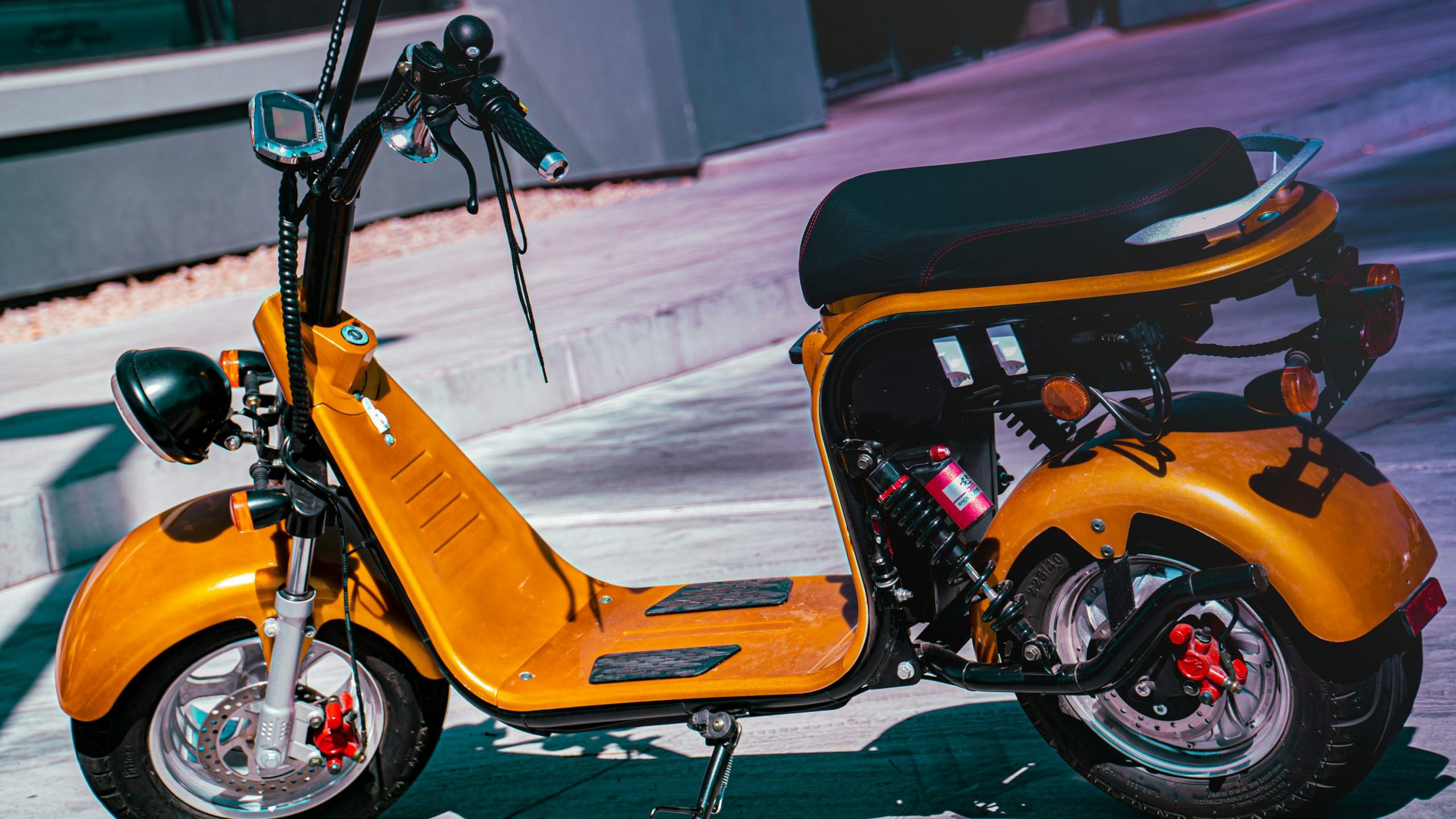
Before discussing registration and insurance, it’s important to understand what qualifies as a moped.
Mopeds typically have two or three wheels and an engine size of up to 50cc. Some also have pedals to assist the engine or to be used independently. This motor vehicle is more powerful than a bicycle but less powerful than a motorcycle.
Mopeds can be classified into two categories:
Pedal Mopeds: These have pedals to assist the engine or to propel the moped without engine power.
Non-Pedal Mopeds: These rely entirely on the engine for movement.
Federal And State Regulations For Motor Vehicles In The United States

In the U.S., moped regulation is primarily handled at the state level, though there are federal guidelines that set the foundation for these regulations.
The federal government classifies mopeds as low-speed vehicles which must meet certain safety standards. However, individual states can impose additional requirements, including registration.
Federal Guidelines
According to the National Highway Traffic Safety Administration (NHTSA), mopeds fall under the category of “motor-driven cycles.”
These are defined as two- or three-wheeled vehicles with engines that produce no more than five brake horsepower (bhp). The NHTSA requires mopeds to have certain safety features like lights, reflectors, and mirrors, but it does not mandate registration at the federal level.
State-Specific Regulations
State regulations regarding moped registration vary widely. Some states require a valid motorcycle license or motorcycle endorsement to operate a moped.
Riders should also purchase liability insurance after getting their motor vehicles registered. While on the road, riders must also carry liability insurance at all times to protect themselves from fines.
Here is a summary of requirements in some of the most populous states:
Alaska: To register your moped or scooter, you need an M2 motorcycle permit and the Manufacturer’s Certificate of Origin for new vehicles, and you must pay a $60 registration fee plus a $15 titling fee, totaling $95. Registration must be completed in person at your local DMV office.
Arizona: Your motor-driven cycle must be registered and titled. However, after registering, a vehicle title is not provided.
California: Mopeds must be registered with the Department of Motor Vehicles (DMV). They are defined as vehicles with engines of 50cc or less or electric motors with a top speed of 30 mph on level ground. A one-time registration fee is required, and a license plate must be displayed.
Colorado: To drive a moped or motor scooter, you need a valid driver’s license and must also register your motor-assisted cycle.
District Of Columbia: In Washington, D.C., the Department of Motor Vehicles (DMV) treats motorized scooters and mopeds as motorcycles for registration and titling. To register, you need to follow the usual motorcycle registration and titling process and pay the corresponding fees.
Florida: Mopeds must be registered with the Department of Highway Safety and Motor Vehicles. They are defined as having motors not exceeding 50cc and top speeds of 30 mph on level ground. License plates must be displayed.
Hawaii: Mopeds must be registered with the County director of finance (249-14(a), HRS), and a registration decal must be placed on the rear fender facing backward (249-14(b), HRS). To complete registration, the moped must have a certification label from the manufacturer confirming compliance with all applicable federal motor vehicle safety standards (FMVSS), as required for all vehicles intended for public road use. All moped operators should have a driver license, license plate, liability insurance, and a moped permit to legally operate it.
Illinois: Mopeds must be registered with the Secretary of State’s office. They are defined as vehicles with engines of less than 50cc and top speeds of 30 mph. Standard license plates are issued.
New York: Mopeds must be registered and are classified into three categories based on top speed. Class A (30-40 mph) and Class B (20-30 mph) mopeds need registration and license plates. Class C (20 mph or less) mopeds also need registration, but not a special license plate.
Texas: Mopeds must be registered with the DMV. They are defined as motor-driven cycles with engines of 50cc or less and top speeds not exceeding 30 mph. Upon registration, a special moped license plate is issued.
International Regulations
Moped registration requirements also vary widely across the globe. Here’s a look at some key regions:
Europe
In Europe, regulations are governed by both the European Union (EU) and individual member states.
United Kingdom: Mopeds must be registered with the Driver and Vehicle Licensing Agency (DVLA). They are defined as vehicles with engines up to 50cc and top speeds of 28 mph. Registration plates must be displayed.
Germany: Mopeds must be registered with local vehicle registration offices. They must have engines of 50cc or less and maximum speeds of 28 mph. License plates are required.
France: Mopeds must be registered with the Agence Nationale des Titres Sécurisés (ANTS). They are defined as having engines up to 50cc and top speeds of 28 mph. Registration numbers and plates are mandatory.
Asia
Regulations in Asia depend on each country’s transportation policies.
Japan: Mopeds must be registered with local municipal offices. They must have engines up to 50cc and top speeds of 30 mph. Registration numbers and plates are required.
India: Mopeds must be registered with the Regional Transport Office (RTO). They must have engines up to 50cc. Registration numbers and plates are mandatory.
China: Mopeds must be registered with local traffic management bureaus. They must have engines up to 50cc and top speeds of 30 mph. Registration numbers and plates are required.
The Rationale Behind Moped Registration
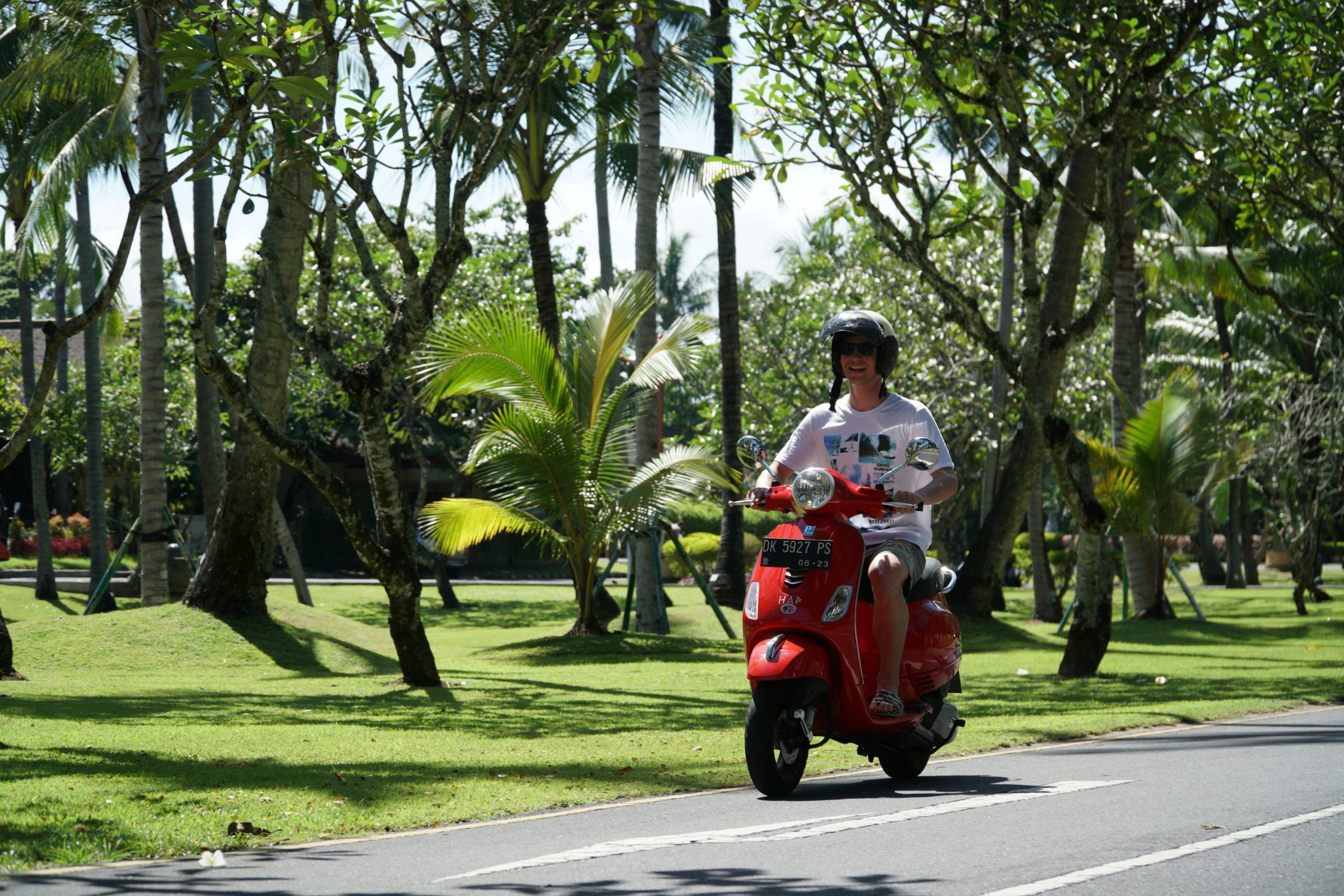
Moped registration laws address various safety, legal, and administrative concerns.
Safety and Accountability
Registration ensures safety and accountability. It allows law enforcement to track stolen mopeds or those involved in accidents, ensuring they meet safety standards.
Road Safety
Registered mopeds must meet road safety regulations, including functioning lights, brakes, and other essential features.
Legal and Administrative Reasons
Registration helps authorities monitor moped numbers, collect taxes, and enforce traffic laws. It also aids in implementing emissions control and other environmental policies.
Insurance Requirements
Many regions link registration to insurance requirements, providing coverage in case of accidents or damages and protecting both the moped owner and other road users.
The Process Of Registering A Moped

The registration process generally involves several steps:
Documentation: Proof of ownership, identification, proof of address, and possibly an emissions certificate.
Inspection: Safety inspection to ensure local standards are met.
Application: Completing a registration application form.
Fees: Paying a registration fee, which may be one-time or annual.
License Plate: Receiving and affixing a license plate and possibly a registration sticker.
Penalties For Unregistered Mopeds
Operating an unregistered moped can result in fines, impoundment, and more severe legal consequences for continued non-compliance.
Even in Hawaii, an unregistered moped is subject to seizure and sale by the police, as specified in 249-15, HRS. Therefore, failing to register your moped could result in its being taken by law enforcement.
Additionally, using a fraudulent decal carries a penalty of $500.00, as outlined in 249-17, HRS. This substantial fine highlights the necessity of complying with legal standards and avoiding dishonest practices regarding vehicle decals.
Exemptions And Special Cases
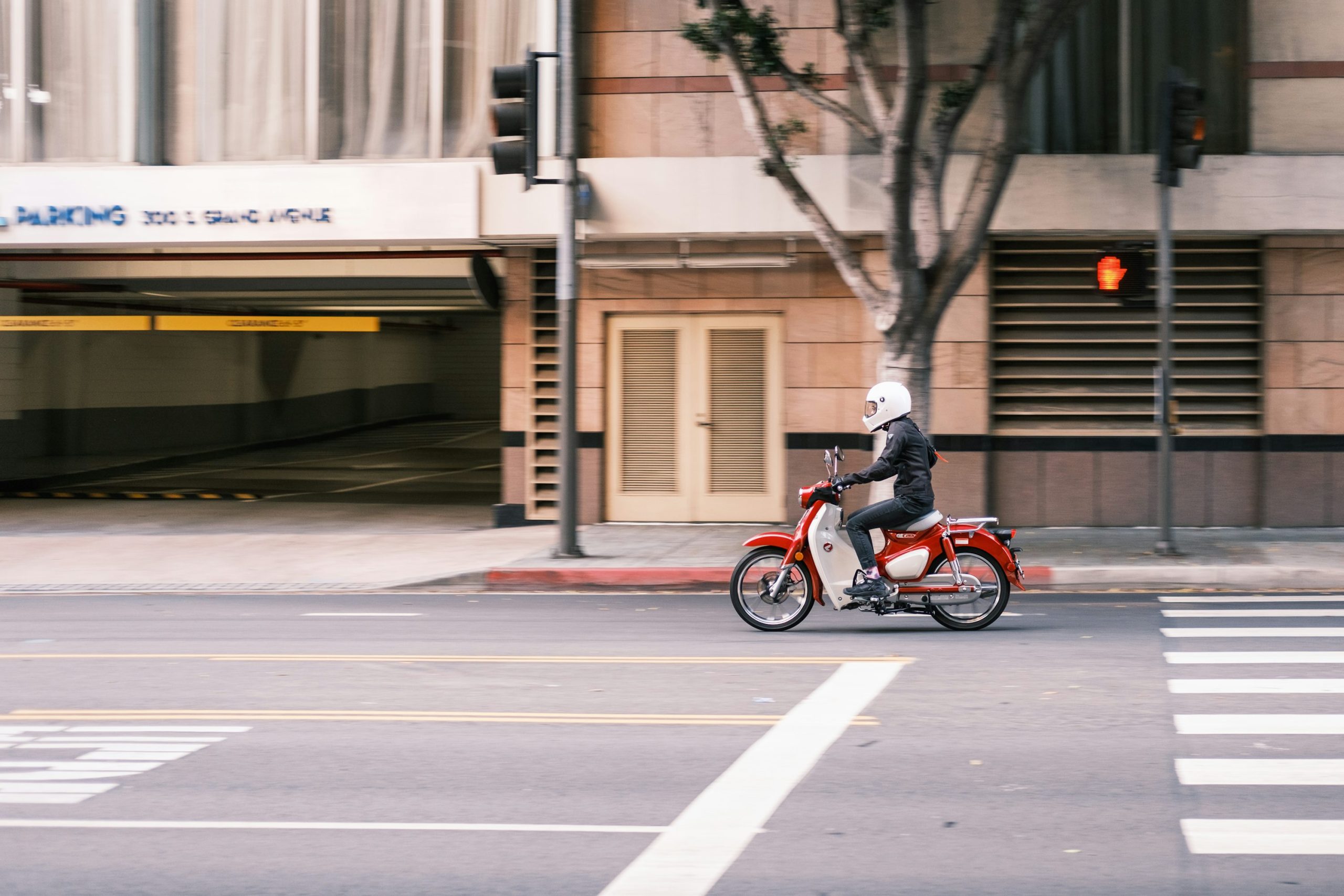
While registration is a must to legally ride a moped, state law still makes some exceptions for not registering your vehicle.
Electric Mopeds
Electric mopeds may have different or simplified registration processes.
Vintage and Collectible Mopeds
Vintage and collectible mopeds might have special registration categories with benefits like reduced fees or specific exemptions.
FAQs
Do I need to register my moped?
Yes, you need to register in most places. However, registration requirements can vary by state or country, so it’s important to check local regulations.
How do I register my moped?
To register your moped, you’ll generally need to visit your local Department of Motor Vehicles (DMV) or equivalent agency. You’ll need to provide proof of ownership, proof of insurance, and possibly a vehicle identification number (VIN).
Do I need insurance for my moped?
Yes, insurance is usually required for mopeds. The specific coverage requirements can vary, so check local laws to ensure you meet all necessary registration and insurance requirements.
Conclusion: Do Mopeds Need To Be Registered?
The need for moped registration depends on your location and the type of moped. While many areas have strict registration requirements, some are more lenient or have exemptions. You need to understand the local laws, which are crucial to ensure compliance and avoid penalties. Registering your moped fulfills legal obligations and contributes to road safety and accountability, providing a smoother and more secure riding experience.
